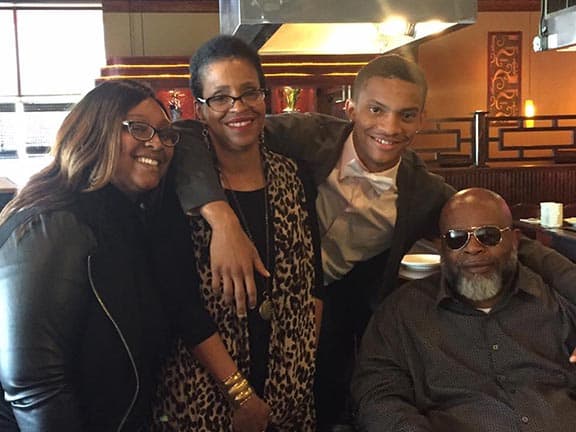For years I have taught how influential the Civil Rights Movement had been for many of the leaders and soldiers in the Independent Living Movement, so I am becoming increasingly concerned about why I am not seeing more disability leaders and activists speaking out more concerning the discrimination and oppression faced by Black America with current affairs and here’s why.
All through the independent movement we have learned and built strategies based on the actions taken by civil right fighters and protesters.
As a matter of fact, protests and sit-ins were one of the major tactics used to bring attention to how mainstream America treated people with disabilities unjustly, thereby discriminating and oppressing people with all types of disabilities. We used our voices well to communicate this unjust treatment.
To make our point even clearer, we (disability leaders and activists) will often say, people without disabilities just don’t see how they discriminate and oppress us:
People without disabilities don’t see the step or lip in the doorway, they just walk over it.
People without disabilities don’t need wider doors or aisles, they just walk through them. But for wheelchair users, that step, that lip or narrow doorway, may well be a brick wall.
People without disabilities don’t see it because it is not part of their everyday experience, so they often have a hard time understanding why people with disabilities feel they are second class citizens.
People without disabilities don’t see how much of an advantage they have over people with disabilities when they can go into any restroom and use it freely.
People without disabilities don’t see the advantage of being able to park in any parking space or watch any television show. But people with disabilities can’t park in any parking space or watch any show, since wheelchair users need extra space and people who are deaf need closed caption and people who are blind needs descriptive narration.
People without disabilities have all types of misconceptions and stereotypes about people with disabilities. Here are a few: People with disabilities are objects of charity. We are sickly and need to be cared for in institutions and hospitals. We are not employable. We are a burden on society.
And since mainstream society never truly interact with people with disabilities, they often treat us based on what they believe to be true — the stereotypes and misconceptions I just mentioned above.
Is it so hard to believe this happens to other groups, too?
And since we know that discrimination and oppression happens to people with disabilities every day, is it so hard to believe that it happens to Black America by White America?
Just like people without disabilities can’t see the physical barriers and attitudinal barriers faced by people with disabilities because they don’t experience it, could it be that White America doesn’t see the mistreatment and injustice faced by Black America?
Is it so hard to believe that since White America doesn’t interact enough with Black America, that in times when emotions are high, someone can default to what they believe to be true about Black America? The defaults would be the misconceptions and stereotypes we all have heard and I refuse to write here.
So my challenge to all disability leaders and activists within the Independent Movement is this:
How can you make your voices heard so loudly when fighting against discrimination and oppression of people with disabilities but become so quiet when you know the same thing can happen to other oppressed groups such as Black America?
Did we only take from the Civil Right Movement to further advance the rights of people with disabilities?
Theo Braddy, MSW, is the CEO of the Center for Independent Living of Central Pennsylvania and adjunct faculty at Millersville University. A quadriplegic, he lives with his wife and children in Harrisburg, Pennsylvania.
Support New MobilityWait! Before you wander off to other parts of the internet, please consider supporting New Mobility. For more than three decades, New Mobility has published groundbreaking content for active wheelchair users. We share practical advice from wheelchair users across the country, review life-changing technology and demand equity in healthcare, travel and all facets of life. But none of this is cheap, easy or profitable. Your support helps us give wheelchair users the resources to build a fulfilling life. |



Recent Comments
Bill on LapStacker Relaunches Wheelchair Carrying System
Phillip Gossett on Functional Fitness: How To Make Your Transfers Easier
Kevin Hoy on TiLite Releases Its First Carbon Fiber Wheelchair